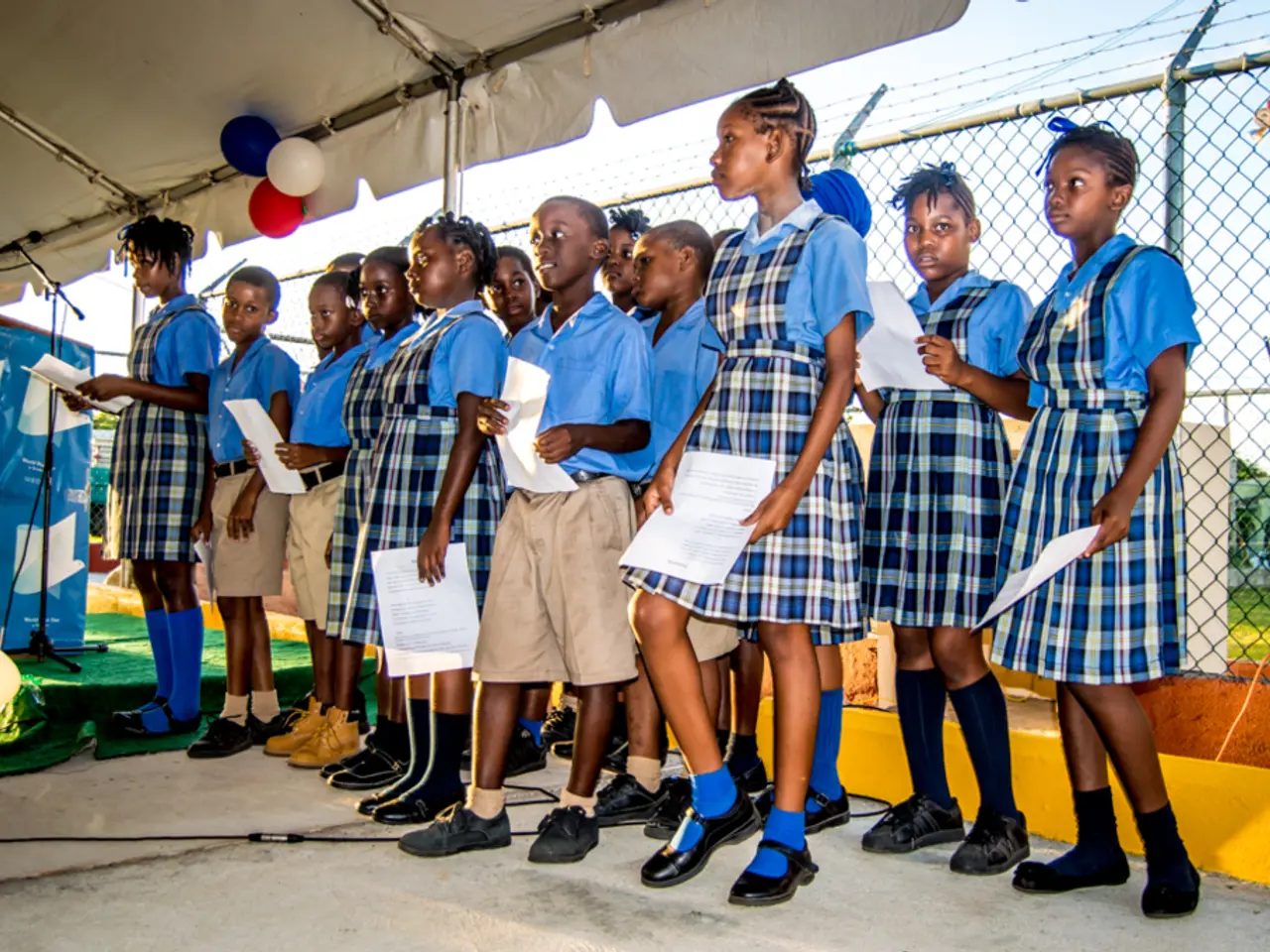Fights persist over "Old Village School" ownership
In the heart of Bremen, a debate has ignited over the proposed demolition of a 155-year-old building on Burgdammer Straße. The historical and architectural landmark, recognised for its unique charm, is at the centre of public concern, as developers or city authorities contemplate tearing it down for potential new construction or redevelopment.
Current Status
As of the latest updates, the demolition project remains under consideration or in its initial stages, with formal approval processes potentially ongoing. Local preservationists, historians, and community groups are actively opposing the demolition, advocating for the protection and restoration of the heritage building. There might be petitions, public demonstrations, or appeals to heritage protection agencies in Bremen to halt or reconsider the demolition. The city council or relevant authorities are likely weighing developmental pressures against heritage conservation requirements, exploring alternatives to demolition.
Controversy
Critics emphasise the building's cultural, historical, and aesthetic significance, drawing attention to its unique architecture and its role in Bremen's urban history. Proponents of demolition might argue for economic development benefits, the need for modern infrastructure, or the building's deteriorated condition as reasons for its removal. This debate encapsulates broader tensions in Bremen and many cities worldwide between urban development and heritage conservation.
The controversy encompasses discussions about legal protections for historic buildings, community engagement in urban planning, and sustainable preservation practices. Architect Uwe Meier, an expert on kindergarten buildings, has pointed out that the council's decision was based on the assumption that only a new building would fit the time frame, but the exact time frame can only be determined once contracts with all trades have been concluded.
Key Points
- The city council approved the demolition in January.
- Architect Uwe Meier, an expert on kindergarten buildings, believes that it would be possible to renovate the village school by the start of the kindergarten year 19/20 without a tender, causing a one-year delay.
- Meier was brought in as an expert by the FDP local branch and the citizens' initiative.
- Council spokesman Martin Hornhues stated in the May council meeting that he felt misled by Immobilien Bremen, as they learned in May that a renovation with an extension would be just as expensive as a new building.
- Harald Rühl, a member of the citizens' initiative, opposes the new building due to cost concerns.
- The citizens' initiative is planning two protest actions for Tuesday, September 19th: one shortly before the start of the city council meeting in front of the city hall, and another starting at 7 pm in front of the Vegesack town hall.
- Rühl questions the basis for the education authority's determination of need in Burgdamm, stating that the numbers are based on the potential number of refugees from Marßel who might bring their families, but this has been suspended by the federal government.
- Rühl accuses the city of pushing for construction on city-owned land to favour Kita Bremen, but this cannot be confirmed by the Senator for Education, Annette Kemp.
- The project leader of Immobilien Bremen, Günter Klänelschen, stated that there can be fluctuations of up to 30 percent in the costs of the new building.
- Jäger criticises the decision made at the time, stating that an active council would not have let that happen.
- Rühl suggests that four more groups could immediately be accommodated in a facility of the SOS Children's Village in Oslebshausen.
Economic and social policy in Bremen is under scrutiny due to the ongoing debate over the preservation of a 155-year-old building on Burgdammer Straße. This policy-and-legislation issue is deeply rooted in the heart of the city's politics, as developmental pressures clash with heritage conservation requirements.
General news in Bremen continues to update on the controversy, as local preservationists, historians, and community groups engage in discussions about legal protections for historic buildings, sustainable preservation practices, and community involvement in urban planning. The future of the contested building remains uncertain, with activists planning protests and experts advocating for potential restoration or alternative solutions.








